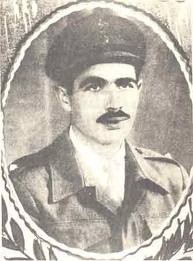The Cyprus liberation struggle 1955-1959. Through the eyes of a woman. printed?
Elenitsa Seraphim-Louizou,
The book is a fascinating and exciting story about the struggle for freedom in Cyprus during the 1950’s, written by EOKA’s only female Area Commander (in Larnaca). The author describes her daily work and the difficulties in the beginning, when she, of course, was met with some suspicion, from the male EOKA members. We meet complete galleries of these brave and glorious fighters, with a focus on the youth and also children, all included in a common struggle against the British occupant. It was a surprise to me to read about so many women, involved in the work, which almost always was very dangerous. It was horrifying to read about the life in prison and that the British did not refrain from torturing 15-year old schoolgirls. They also shot schoolchildren and women during demonstrations.

The struggle was lead by G. Grivas from a distance, but extremely carefully organised by the different area commanders all over the island. Without this imposing network with people of all ages working at a very high risk, nothing would have been obtained. One wonders how they possibly could remember all the different code names; other’s or their own. We read about life in the hideouts where the EOKA fighters, wanted by the police, had to hide, not to being shot.
One would have liked to ask an Englishman if he would have allowed a foreign nation to invade HIS country without making any resistance. The attitude of the British was, as ever, arrogant and full of racism. The murdered and executed many fighters; sometimes only because they carried pamphlets. To be observed with a gun or a bomb of course was meant death penalty. The author also describes how “the Turks were stirred into action against the Greeks” by the British.
Sometimes the glorification of the dead heroes, or the reactions of the mourning parents seem rather inhuman or, rather, over human. A father, full of grief, says: “Let your country have your blood, son.” Or the mother of the victim: “That’s how I wanted you to come back, son. A hero.” Is this a Greek tragedy or a cry from the mother of a jihad fighter? Or is it perhaps not possible to understand this, if you never experienced war?

Elenitsa Seraphim-Louizou gives us many examples of brave and big-hearted Turkish Cypriots, anxious to help and warn their friends and neighbours against the less benevolent Turkish Cypriots in the Auxiliary Police or against the enemy. But she doesn’t mention that many Turkish Cypriots actually took part in the struggle against the Colonial Government, but perhaps that happened later in the 60’s (See Dr Ihsan Ali, ”My memoirs” Ihsan Alis Foundation 2000).
Throughout the book we learn that the Greek Cypriots “love Greece, our mother country”, but it is perhaps easy to be critical in a very late perspective, after the horrible events that caused the Turkish invasion.
Rather repulsive is also the decision by Grivas to kill a Turk (Turkish Cypriote?) in revenge for every death of a Greek, when many innocent people were killed.
Many very interesting photos are shown in the book; unfortunately very small and sometimes hardly visible. The author has also included letters from Grivas (Dighenis, Zappas etc) to her; also interesting but the letters are too small to read.
A new edition is very recommendable, with better photos and proofreading. The book seems to be translated by a British, but appear to contain some strange expressions. A better cover is also necessary since it fall into pieces after careful reading of this remarkable book.